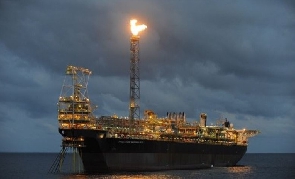The Public Interest and Accountability Committee (PIAC) in its 2020 report bemoaned its inability to account for some parts of the Annual Budget Funding Amount (ABFA) for the first quarter of 2020.
“This is because the ministry’s persistent failure (fourth time) to provide half-year data on ABFA utilization is not only adversely affecting the work of the committee but [is] also eroding gains in the fight for transparency and accountability in the management and use of Ghana’s petroleum revenues for the benefit of citizens,” Noble Wadzah, the chairman said in the report.
Read the full story originally published on November 27, 2020, by thebusiness24online.net
The Public Interest and Accountability Committee (PIAC), which monitors the use of petroleum revenue, says it is unable to report on the programmes and activities undertaken with an amount of US$169.51 million disbursed to the Annual Budget Funding Amount (ABFA) for the first quarter of 2020.
The ABFA is the portion of petroleum revenue used to support government’s budget.
In its 2020 semi-annual report, the committee said it was also unable to provide an update on the status of unutilized and unaccounted-for ABFA funds, which stood at GH?1.5bn.
For this reason, Mr. Noble Wadzah, chairman of PIAC, repeated his earlier call on Parliament to strengthen the committee’s oversight mandate on the Ministry of Finance.
“This is because the ministry’s persistent failure (fourth time) to provide half-year data on ABFA utilisation is not only adversely affecting the work of the committee, but [is] also eroding gains in the fight for transparency and accountability in the management and use of Ghana’s petroleum revenues for the benefit of citizens,” the chairman said in the report.
The report also disclosed that the cumulative indebtedness to Ghana National Gas Company (GNGC) continued to increase to US$942.26 million.
This, the report said, is as a result of the failure of GNGC’s customers to honour their obligations.
The Ghana Petroleum Fund reserves, according to the report, recorded a 24.1 percent reduction at the end of June 2020 compared with the same period of 2019. This was as a result of the lowered cap and subsequent withdrawals from the Ghana Stabilisation Fund (GSF).
“Consequently, the GSF yield reduced by 68.08 percent from that of the same period of 2019,” it added.
During the first half of 2020, cumulative raw gas production increased significantly by 65 percent, the highest recorded half-year volume of gas produced since 2010.
Total petroleum receipts in the Petroleum Holding Fund (PHF) in the same period stood at US$322.57m, indicating a decline of 11.32 percent from a year ago.
According to PIAC, GNGC received US$1.78 million under the Cash Waterfall Mechanism in order to address its indebtedness to the Ghana National Petroleum Corporation (GNPC) for gas supplied. However, the committee said there was no payment to GNPC.
Consistently, the non-payment of gas revenue denies the PHF of its due entitlement, the committee added.
Watch the latest episode of BizTech below:
Click to view details



Business News of Friday, 25 November 2022
Source: www.ghanaweb.com
Today in History: US$169 million oil money unaccounted for - PIAC
Opinions
















